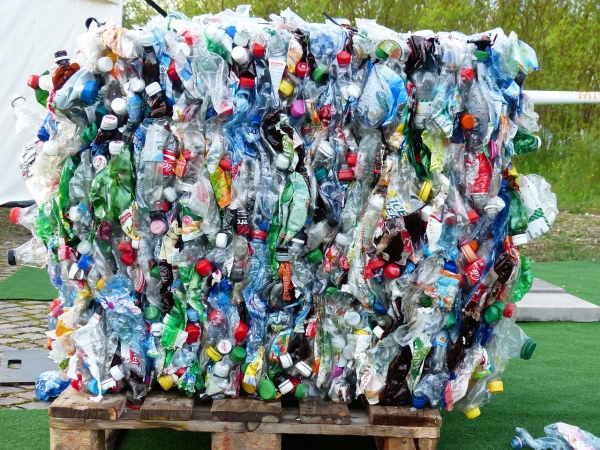Bob Powell had spent more than a decade in the energy industry when he turned his attention to the problem of plastic waste. “I’m very passionate about the environment,” he says. To him, the accumulating scourge of irresponsibly discarded plastic ranks high on the list of environmental issues, “right behind global warming and drought.” In 2014, he found what he considers a solution: a suite of technologies that uses chemicals and heat to turn plastic into oil to manufacture more plastic.
In the years since, Powell founded a “plastics renewal” company, Brightmark, Inc., whose first plant, currently in its start-up phase, has processed 2,000 tons of waste plastic at its Circularity Center in Ashley, Indiana. Using an “advanced plastics recycling” technique called pyrolysis, post-consumer plastics delivered to the Brightmark plant are subjected to intense heat in an oxygen-starved environment until their molecules shake apart, yielding a type of oil similar to plastic’s petroleum feedstock, along with some waste byproducts. Ideally, Powell says, Brightmark will sell the oil to produce new plastic, promoting true circularity in the manufacturing supply chain.
Around the world, companies are drawing up plans for pyrolysis plants, promising relief from the crushing problem of plastic pollution. Small startups and demonstration projects are joining with larger companies, including petroleum and chemical giants. Chevron Phillips was recently awarded a patent for its proprietary pyrolysis process, and ExxonMobil announced in March it was considering opening pyrolysis plants in Baton Rouge, Louisiana; Beaumont, Texas; and Joliet, Illinois. ExxonMobil already operates a pyrolysis facility in Baytown, Texas, which the company claims will recycle 500,000 tons of plastic waste annually by 2026.
Read more at: Yale Environment 360
Photo Credit: Hans via Pixabay


